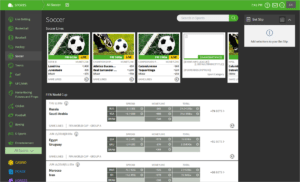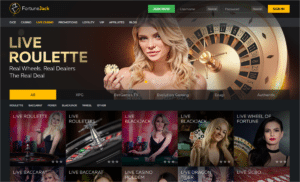Best Crypto Casinos
The Coin Clarity Guide to Cryptocurrency Casinos
Crypto casinos are the safest and most convenient way to gamble online today. The adoption of Bitcoin (BTC) at online casinos has made signing up, depositing, and cashing out winnings safer, faster, and cheaper. With instant deposits and withdrawals, you now have a feeling of confidence and control at crypto casinos that has never been imaginable. Since Bitcoin is a decentralized and transparent payment network, you can track your payment like a package tracking number.
What is the best crypto casino?

We have over 125 bitcoin casinos listed and reviewed on Coin Clarity, but after years of research and experience, we have narrowed down the options to a few of our favorites. While it is difficult to say everyone should sign up at a specific bitcoin casino, we have some casinos that we recommend based on what is important to you. If you want the best bitcoin casino bonus, or the best bitcoin poker site, or the best bitcoin slots, you should feel completely comfortable signing up and playing at any of the following casinos.
Top Rated Cryptocurrency Casinos
 7Bit Casino5 BTC + 100 Free SpinsPlay Now
7Bit Casino5 BTC + 100 Free SpinsPlay Now

- US Players welcome
- Games: 700+ Casino, Live Casino, Dice
- Accepting: BTC, LTC, ETH, BCH, DOGE
About FortuneJack Casino:
7Bit Casino is our best bet for winning money with lots of recurring added value promotions including a weekly Monday reload bonus, daily 5-15% cash back on previous day’s losses when you make a deposit, weekly weekend cashback paid out on Mondays up to 20%, and 100 free spins every Wednesday if you make a €50 deposit.
Bovada Casino150% up to $5000Play Now

- US Players welcome
- Games: Live Sports, ESports, Live Casino, Table Games, Slots, Poker, Horses
- Accepting: BTC, BCH
About Bovada Casino:
Bovada is the oldest and most trusted online casino and now offers betting in Bitcoin and Bitcoin Cash. Bovada has the largest slate of sports to bet on as well as lots of props and in-game betting options.
Bitcoin poker players should definitely sign up at Bovada for their ample player traffic and fun and loose poker games.
mBit Casino5BTC + 300 Free SpinsPlay Now

- US Players welcome
- Games: Slots, Roulette, Baccarat, Live Casino, Lottery
- Accepting: BTC, LTC, ETH, BCH, DOGE, USDT
About mBit Casino:
mBit Casino offers the best welcome bonus in the entire Bitcoin casino industry with up to 5 BTC and 300 free spins on any qualifying slot machine.
 7Bit Casino5 BTC +100 Free SpinsPlay Now
7Bit Casino5 BTC +100 Free SpinsPlay Now
- US Players welcome
- Games: 700+ games
- Accepting: BTC, LTC, ETH, BCH, DOGE

About 7Bit Casino:
7Bit Casino is our best bet for winning money with lots of recurring added value promotions including a weekly Monday reload bonus, daily 5-15% cash back on previous day’s losses when you make a deposit, weekly weekend cashback paid out on Mondays up to 20%, and 100 free spins every Wednesday if you make a €50 deposit.
Bovada Casino150% up to $5000Play Now
- US Players welcome
- Games: Live Sports, ESports, Live Casino, Table Games, Slots, Poker, Horses
- Accepting: BTC, BCH

About Bovada Casino:
Bovada is the oldest and most trusted online casino and now offers betting in Bitcoin and Bitcoin Cash. Bovada has the largest slate of sports to bet on as well as lots of props and in-game betting options.
Bitcoin poker players should definitely sign up at Bovada for their ample player traffic and fun and loose poker games.
mBit Casino5btc +300 Free SpinsPlay Now
- US Players welcome
- Games: Full Casino, Live Casino, Lottery
- Accepting: BTC, LTC, ETH, BCH, DOGE, USDT

About mBit Casino:
mBit Casino offers one of the best new-player bonuses in the industry, and they have a strong reputation for being trustworthy.
Our Methodology For Determining Best Crypto Gambling Sites
Since we track every bitcoin and crypto casino in existence, we know who is out there and we only recommend a casino above all the others if it meets some very strict criteria. All of the casinos you see listed in this guide highlighted as “top bitcoin casinos” are highly rated in the following areas:
Provably Fair: How do you know you’re not getting cheated at crypto casino sites?
One of the greatest innovations that cryptocurrencies enable in the crypto gambling industry is the ability to prove that the outcome of any specific bet is fair. Provably fair allows users to independently verify the results of a bet to prove that it was fair. This is accomplished using cryptography to show that the odds and rules of the games were followed and resulted in a fair outcome of the bet.
Related articles:
7Bit Casino: Our top provably fair crypto casino

7Bit Casino is our pick for the best provably fair games. 100% of the 700+ games you play on 7Bit are provably fair. This can be easily verified using their interface to prove that no party could possibly know the outcome before the beginning of the game or bet. Options at 7Bit include provably fair blackjack, slots, roulette, dice, and provably fair card games.
Beyond the impressive fact that all of 7Bit’s games are provably fair, they have been around since 2014, making them one of the oldest crypto-focused casinos, and also offer one of the best welcome bonus packages with 5 BTC + 100 free spins in bonuses over your first 4 deposits.
Sign up for 7Bit Casino 7Bit Casino user reviews
Cashout Speed: The faster the better
Cashout speed is one of the greatest leaps forward that crypto has brought to the online casino industry. Gone are the days of waiting literally months for cashed out winnings to hit your bank account. But with greater speed and autonomy comes more responsibility. Nothing leaves crypto users more uneasy and nervous than initiating a transaction, then watching the screen while the transaction processes through the network. Did I put in the wrong address? Am I getting scammed by the other party? Was there a glitch when I pressed the button?
This is why the speed of cashouts at crypto casinos is one of the biggest factors to consider. Modern crypto casino sites with fast cashouts are anywhere from instant to a few hours.
Casino Age: The older the better
This one is pretty simple: The more years a casino has been in operation, the more years it will likely be in operation. Even the oldest online casinos have only been in operation for 20 years. This is a really long time in internet years, but is not all that old in traditional terms. We give more weight to casinos that have been around a long time.
Games: How many and how good?
We’re all trying to find a casino with fun games, good bonuses, and a chance to win. So the volume, variety, and quality of games is a key factor to consider when researching where to sign up. This one is subjective because there are several crypto casinos that offer 1,000+ games to play – but if you’re looking for a specific game that isn’t offered, that casino is worthless to you.
So, we do give weight to casinos with a higher game count, but you should check out our reviews to see which crypto casino is the best fit for you.
Reputation: The factor you can’t know without experience
The owners of CoinClarity have over 35 years of combined experience in the online gambling industry – since it was brand new in the early 2000s. We have personal connections with hundreds of people in both, the fiat and crypto casino industries, and it is literally our job to know who is reputable and who is not. We use our insider status to know which crypto casinos are a little shady (or a lot shady), and which ones are rumored to be heading downhill.
Although we have reviews for every single crypto casino on the planet, we only stick our necks out for those with the best reputations. We will never risk our own reputation by pushing shady crypto casinos.
Customer Support: Quality matters when you need it most
Customer support for crypto casinos is rarely needed, but when it is, it’s REALLY NEEDED! We keep track of which cryptocurrency casinos have the best and fastest support options to get you help when you need it.
Crypto Casino Bonuses: Why they should influence your decision
As the title says, bonuses should influence a player’s decision on where to play – but it’s not always the most important factor. Bonuses can have a significant impact on how much money players win (or lose) at online crypto casinos, but there are a number of factors at play here. For example, slots players can earn bonuses quite rapidly at most casinos, but blackjack players will have a tougher time of it. The games you play, the amounts you wager, and the casino’s rollover requirements all have an impact.
Crypto casino bonuses are such an important topic that we’ve written a thorough exploration of how to earn the biggest bonuses. Keep reading.
Best Crypto Casino Bonuses
There are several types of bonuses that crypto casinos offer. The most common are new-player signup bonuses (a.k.a. ‘Welcome’ or ‘First Deposit’ bonuses), which offer players a matching deposit up to a certain amount. Lots of crypto casinos will also offer between 100 – 250 free slot spins on top of a deposit match. Reload bonuses (loyalty bonuses) are also common, and they allow existing players to earn bonus money after they’ve cleared their new-player bonuses. If you’re looking to get the most bang for your buck, these are the top-rated crypto casinos based on bonus size and quality:
mBit Casino5BTC + 300 Free SpinsPlay Now

- US Players welcome
- Games: Slots, Roulette, Baccarat, Live Casino, Lottery
- Accepting: BTC, LTC, ETH, BCH, DOGE, USDT
About mBit Casino:
mBit Casino offers the best welcome bonus in the entire Bitcoin casino industry with up to 5 BTC and 300 free spins on any qualifying slot machine.
 7Bit Casino5 BTC + 100 Free SpinsPlay Now
7Bit Casino5 BTC + 100 Free SpinsPlay Now

- US Players welcome
- Games: 700+ Casino, Live Casino, Dice
- Accepting: BTC, LTC, ETH, BCH, DOGE
About 7 Bit Casino:
On top of a 5BTC plus 100 FREE SPINS welcome bonus, 7Bit Casino is our best bet for winning money with lots of recurring added value promotions including a weekly Monday reload bonus, daily 5-15% cash back on previous day’s losses when you make a deposit, weekly weekend cashback paid out on Mondays up to 20%, and 100 free spins every Wednesday if you make a €50 deposit.
CloudBet Casino5BTCPlay Now

- NO US Players
- Games: Live Sports, ESports, Live Casino, Table Games, Slots
- Accepting: BTC, ETH, BCH
About CloudBet Casino:
CloudBet Casino offers some unique options like live sportsbetting as well as eSports betting. CloudBet offers games in the most popular cryptocurrencies: Bitcoin, Ethereum, and Bitcoin Cash.
mBit Casino5btc +300 Free SpinsPlay Now
- US Players welcome
- Games: Full Casino, Live Casino, Lottery
- Accepting: BTC, LTC, ETH, BCH, DOGE, USDT

About mBit Casino:
mBit Casino offers one of the best new-player bonuses in the industry, and they have a strong reputation for being trustworthy.
 7Bit Casino5 BTC +100 Free SpinsPlay Now
7Bit Casino5 BTC +100 Free SpinsPlay Now
- US Players welcome
- Games: 700+ Slots, Live Casino, Dice
- Accepting: BTC, LTC, ETH, BCH, DOGE

About 7Bit Casino:
On top of a 5BTC plus 100 FREE SPINS welcome bonus, 7Bit Casino is our best bet for winning money with lots of recurring added value promotions including a weekly Monday reload bonus, daily 5-15% cash back on previous day’s losses when you make a deposit, weekly weekend cashback paid out on Mondays up to 20%, and 100 free spins every Wednesday if you make a €50 deposit.
CloudBet Casino5BTCPlay Now
- NO US Players
- Games: Live Sports, ESports, Live Casino, Table Games, Slots
- Accepting: BTC, ETH, BCH

About CloudBet Casino:
On top of their casino, CloudBet also offers sportsbetting and eSports. For deposits & withdrawals, CloudBet accepts Bitcoin, Ethereum, and Bitcoin Cash.
What makes the best crypto casino bonus?
There are some important factors that go into making an attractive bonus. The main factors to consider when researching a casino signup bonus are:
Wagering Requirements: The hidden factor that decides how much bonus you “earn”
There’s a secret that no one tells you when you sign up for a casino and receive a huge deposit bonus.
You have to “earn” that bonus! It isn’t just all deposited into your account as soon as you make your first deposit. A bonus amount is usually deposited into a separate part of your bankroll as a “pending bonus” of which you earn more over time.
Crypto casinos generally require that you bet 35 BTC to 50+ BTC to earn 1 BTC in bonus money.

The amount you need to wager in order to earn bonus money is cumulative, as seen below.
Example bonus wagering requirements
- To earn a 1 BTC bonus you would have to wager 35 to 50 BTC
- To earn a 2 BTC bonus you would have to wager 70 to 100 BTC
- To earn a 3 BTC bonus you would have to wager 105 to 150 BTC
- To earn a 4 BTC bonus you would have to wager 140 to 200 BTC
- To earn a 5 BTC bonus you would have to wager 175 to 250 BTC
So using a 35x wagering requirement, let’s say you make the following bets:
- Bet 1 – 0.1 BTC
- Bet 2 – 0.05 BTC
- Bet 3 – 0.1 BTC
- Bet 4 – 0.1 BTC
In this scenario, you would have bet a total of 0.35 BTC over 4 total bets. Divide this amount by the 35x wagering requirement and you would release .01 BTC of your bonus into your general betting account.
As you can see from the math, you need to bet a lot of money over a lot of bets to release your entire bonus. Luckily your total cumulative bet amount is WAY higher than you would think.
An important point about your total wagered amount
Your total wagered amount has nothing to do with how much you win or lose, only the total amount you bet.
Total Bonus Size: Take advantage of many bonuses over time
The bonus amount that we list next to all casinos on Coin Clarity is the total bonus amount. This is different from the “sign up bonus” or “welcome bonus” that is offered on your first deposit at a new casino.
The best way to explain this is to show you a real example from FortuneJack Casino. FortuneJack offers 4 standard bonuses to all players (and various other special bonuses throughout the year). The 4 crypto bonuses are:
- First deposit bonus is 110% up to 1.5 BTC + 250 free spins.
- Second deposit bonus is 50% up to 1 BTC.
- Third deposit bonus is 50% up to 1 BTC.
- Fourth deposit bonus is 100% up to 1.5 BTC.
The total of all deposit bonuses is 5 BTC + 250 free spins.
The wagering requirements at FJ are 40x for the deposit and 50x for the free spins.
Reload bonuses
- Some casinos offer recurring reload bonuses. For example, FortuneJack offers a weekly reload deposit bonus of 50% match up to 3.5 BTC, with some restrictions and limits. Simply make a deposit on Mondays and the bonus will be added to your account. This means that by taking advantage of recurring reload bonuses, your total bonus amount is essentially unlimited over time.
Crypto Casino Dapps (Decentralized Apps)
The future is now, with blockchain-based gambling decentralized apps (or DApps) here and ready to play. There is an incredible amount of innovation and energy in the decentralized application field, with new blockchain platforms like EOS and Ethereum, leading the way.
Developers have built nearly 250 gambling DApps on Ethereum and over 100 on EOS, which is a newer, but more high-performance blockchain than Ethereum. Blockchain platforms like Ethereum and EOS do not use Bitcoin, but instead, have their own currencies. Ethereum has Ether (ETH), and EOS has (surprise!) EOS.
There are everything from simple coin flip games, to full service, increasingly robust online casinos featuring slots and table games, to blockchain poker.
What casino games can I play using cryptocurrency?
All of the same casino games available at traditional fiat casinos can be played at online casinos which accept crypto.
List of crypto casino games:
Slots
- mBit Casino – Huge selection, all slots are provably fair.
- Cloudbet – Huge selection of slots & a great welcome bonus.
- FortuneJack – Hundreds of games & daily and progressive jackpots.
Gone are the days when you had no idea if the site’s random number generator was truly random, let alone whether each spin of the wheel is provably fair. Now slots can be verified to be fair using cryptography.
mBit Casino – every single spin on every slot machine is provably fair using a hashing algorithm. Their crypto slot games number in the hundreds, including progressive jackpots, 3-reel, 5-reel, video and 3D slots. They have it all.
Dice
- DuckDice – A simple, quirky high/lo dice game with a great community.
- Cloudbet – Huge selection of dice games & a great welcome bonus.
- FortuneJack – Hundreds of games & daily and progressive jackpots.
Dice is the original game that made gambling with Bitcoin a thing. With simple game mechanics and easy-to-learn rules, dice games are a perfect game for casual gamblers to play. Enjoy all the benefits of provably fair games, ease of deposit and withdrawal using BTC, and fun gameplay.
Poker
- Bovada USA welcome The best online poker site – offers deposits in BTC & BCH. Lots of players and juicy games.
- BetOnline USA welcome A reputable online poker room that has been around for over a decade. BTC deposits.
Online poker was one of the first industries online to embrace Bitcoin as a valid currency. Switch Poker started supporting Bitcoin deposits and withdrawals in August 2011 when BTC was less than $10!
The United States government has made it difficult for online poker sites to deal with traditional banking institutions, so crypto and online poker is a match made in heaven. Crypto allows online poker sites to lower the cost and time required to facilitate deposits and withdrawals between players and their online poker account. If you’ve been around online poker prior to BTC being used for transactions, you’ll know that even at fully reputable sites, cashouts could take over a month to reach your bank account. Before crypto was an available deposit/withdrawal option, online poker rooms had to use a string of offshore 3rd party payment processors to receive money, cut checks, send checks via DHL or UPS, and it was all a real headache!
Nowadays, crypto deposits are processed almost instantly. This is amazing! Transaction fees are also extremely low, another benefit of crypto deposits & withdrawals.
Bovada: The best online poker room for crypto

Bovada has been around a long time, and you may remember when it used to be called Bodog. Bovada has been serving poker games since 2004, way back at the beginning of online poker. They have been in continuous operation since they opened, and are as reputable as they come in the online gambling industry. All players are anonymous at Bovada poker tables which favors beginners and easy games, since hardcore online poker pros can’t track and exploit newer and more casual players.
Bovada offers poker tournaments with $1.5 million in weekly guaranteed payouts, and has lots of cash game tables running at all stakes, from the smallest tables up to high-stakes no-limit Texas Hold ’em.
Sign up for Bovada Bovada user reviews
Sports Betting
Online sportsbooks have rapidly embraced alternative payment methods to ensure continuity, low costs, and speed and security of transactions. Many of the most reputable sportsbooks now accept cryptocurrencies as a payment option.
- Bovada USA welcome. One of the oldest & most reliable sportsbooks – accepts deposits in BTC & BCH.
- SportsBetting.ag USA welcome. Same operators as BetOnline. Offers international sports and esports.
- BetOnline USA welcome. Old, reliable, & lots of good lines with low vig. BTC deposits.
At any of our recommended sportsbooks, you can bet on American football (NFL & NCAA), MLB baseball, NHL hockey, soccer (EPL, MLS, Serie A, La Liga, Bundesliga), golf (PGA & LPGA), racing (NASCAR, F1, horses), eSports (video games), and many others.
As betting on sports is as old as sports themselves, this old school industry has been brought into the new digital world in a big way with the advent of online sports betting and now digital trustless currencies.
With the earliest online sportsbooks (allegedly) being run by the mafia, which ran the biggest offline sports betting operations, “trustless” blockchain-based transactions are a huge step in the final legitimization of a once distrusted industry.
You can now bet and transact with offshore sportsbooks with full trust that you will be paid for your winning bets in a timely manner, especially at the three sportsbooks we recommend above, all of whom have at least a decade of (mostly) reliable and trustworthy operation under their belts.
Roulette
Playing roulette is one of the simplest and most fun activities you can play at a casino. If you’ve never played a casino game in your life, roulette is a great place to start.
- mBit Casino USA welcome 14 roulette games and 781 other fun games to play with instant deposit & cashouts.
- Slots.lv USA welcome Devoted to traditional casino games like roulette and slots.
- CloudBet – 9 roulette variations as well as live roulette with real wheels and real dealers plus a huge 5 BTC bonus.
To play roulette, all you do is place a wager on a number on the board, wait for the wheel to spin, and see if you won. There are other more complicated bets you can learn and try as you become more comfortable, but
Pro tip: Stick to betting on one number at a time!
The best odds at the roulette table are on single numbers. You get better odds if you bet on a single number (35:1 odds) vs a split number (1/2 bet on 2 adjacent numbers – 34:1 odds) or a corner bet (1/4 bet on 4 adjoining numbers – 32:1 odds).
There are different rules and odds for each roulette game variant, so make sure you read the rules thoroughly for each game you try.
Lottery
Lottery (or lotto) is one of the simplest gambling games around. If you have ever played the lotto in real life, the Bitcoin lottery is really similar to US Power Ball, MegaMillions, or EuroMillions.
- FortuneJack USA welcome On-demand, fixed-odds, 3rd party verified. Keno games with a big jackpot.
- LottoLand – A unique lottery that bases its draws from real-world lotto events like MegaMillions & EuroMillions.
- DuckDice USA welcome Provably fair – one draw per 24 hrs allows the prize pool to build up.
Advantages to playing the lottery for Bitcoin is that the draws are provably fair, you can access and play from home or your mobile phone, and draws happen much more often than the typical once per week of offline lotto pools. Most online versions resemble Keno, so you can think of all of these games as “Bitcoin Keno” as well.
“Bitcoin lottery” is a pretty wide term with there being lots of different formats, terms, odds, and bet sizes. Our recommended casinos highlight three completely different approaches to how to operate games. FortuneJack is on-demand with fixed odds, which lets users play as many draws as they want for any stakes they want. LottoLand bases its draws and results off real-world lottery pools in Europe, the UK, and the United States, which means the draws are farther apart and scheduled out ahead of time. DuckDice has an in-house developed lotto game that draws once every 24 hours, which allows you to play every day while also letting each prize pool build to large amounts.
Blackjack
Blackjack is an iconic game wherein players try to get as close to 21 as possible without going over, called “busting.” Here are some awesome places to play blackjack:
- FortuneJack USA welcome Our top overall casino has 30+ blackjack variations & live POV tables.
- mBit Casino USA welcome 16 types of blackjack games. Great bonuses.
- BitCasino.io USA welcome Best bet for live blackjack fans with 16 different kinds of live BJ tables.
If you’ve ever played cards at a real-life casino – maybe in Las Vegas or Macau – odds are you’ve played, or at least seen Blackjack. It usually has the most tables on the floor with people crowded around trying to get 21 and beat the dealer.
The casinos listed above are all great places to play blackjack, and we’d like to highlight one of our favorite places, especially if you like playing against a real-life dealer in real-time.
BitCasino.io: Our top casino for live dealer Blackjack

BitCasino is our top pick if you want the thrill of playing with and interacting with a real human dealer across the virtual online table. They offer 16 types of live blackjack games including classic blackjack, multi-hand, and private one-on-one tables.
BitCasino also has a solid 100% up to 1 BTC welcome bonus & a 50% up to 1 BTC 2nd deposit bonus, as well as an awesome “Loyalty Club” with up to 10% cashback and hundreds of free spins.
Sign up for BitCasino.io BitCasino user reviews
Baccarat
Baccarat is a very popular card game among high rollers and international players. It is played by comparing the player’s hand against the banker’s hand and determining whether the player wins, the banker wins, or it’s a tie.
- mBit Casino USA welcome 23 types of baccarat plus lots of live dealer tables equals unbeatable baccarat action!
- FortuneJack USA welcome 6 types of baccarat games & live dealer baccarat. Rated top 10 in the world.
- CloudBet – 13 types of baccarat & 9 live dealer versions
Bitcoin Casinos for USA Players
It has always been an adventure trying to find legal and reliable online casinos for players in the USA. The United States government has seemed to make it their mission to make it difficult to gamble online safely, and they were pretty effective at that mission.
Bitcoin came along and changed everything. US Bitcoin casinos are now plentiful and payments are secure and relatively anonymous.
Top 3 US Bitcoin Casinos:
Bovada Casino150% up to $5000Play Now

- US Players welcome
- Games: Live Sports, ESports, Live Casino, Table Games, Slots, Poker, Horses
- Accepting: BTC, BCH
About Bovada Casino:
Bovada is the oldest and most trusted online casino and now offers betting in Bitcoin and Bitcoin Cash. Bovada has the largest slate of sports to bet on as well as lots of props and in-game betting options.
Bitcoin poker players should definitely sign up at Bovada for their ample player traffic and fun and loose poker games.
mBit Casino5BTC + 300 Free SpinsPlay Now

- US Players welcome
- Games: Slots, Roulette, Baccarat, Live Casino, Lottery
- Accepting: BTC, LTC, ETH, BCH, DOGE, USDT
About mBit Casino:
mBit Casino offers the best welcome bonus in the entire Bitcoin casino industry with up to 5 BTC and 300 free spins on any qualifying slot machine.
 FortuneJack Casino5 BTC + 250 Free SpinsPlay Now
FortuneJack Casino5 BTC + 250 Free SpinsPlay Now

- US Players welcome
- Games: 900+ Casino, Live Casino, Sports, Dice
- Accepting: BTC, LTC, ETH, BCH, XMR, TRX, DOGE, DASH, ZEC
About FortuneJack Casino:
FortuneJack Casino is one of our favorites because it has a wide selection of crypto deposit and withdrawal options, over 900 game choices, and a fantastic welcome bonus on your first deposit.
Bovada Casino150% up to $5000Play Now
- US Players welcome
- Games: Live Sports, ESports, Live Casino, Table Games, Slots, Poker, Horses
- Accepting: BTC, BCH

About Bovada Casino:
Bovada is the oldest and most trusted online casino and now offers betting in Bitcoin and Bitcoin Cash. Bovada has the largest slate of sports to bet on as well as lots of props and in-game betting options.
Bitcoin poker players should definitely sign up at Bovada for their ample player traffic and fun and loose poker games.
mBit Casino5btc +300 Free SpinsPlay Now
- US Players welcome
- Games: Full Casino, Live Casino, Lottery
- Accepting: BTC, LTC, ETH, BCH, DOGE, USDT

About mBit Casino:
mBit Casino offers one of the best new-player bonuses in the industry, and they have a strong reputation for being trustworthy.
 FortuneJack Casino5 BTC +250 Free SpinsPlay Now
FortuneJack Casino5 BTC +250 Free SpinsPlay Now
- US Players welcome
- Games: Slots, Live Casino, Sports, Dice
- Accepting: BTC, LTC, ETH, BCH, XMR, TRX, DOGE, DASH, ZEC

About FortuneJack Casino:
FortuneJack Casino is one of our favorites because it has a wide selection of crypto deposit and withdrawal options, over 900 game choices, and a fantastic welcome bonus on your first deposit.
With a tricky banking environment for online gambling in the US, Americans have flocked to using Bitcoin to both get money in and out of online betting establishments, as well as wagering directly in BTC itself.
The security, low cost per transaction, transaction speed, and relative anonymity are all fantastic reasons to use Bitcoin for gambling online. Let’s go through the pros of using Bitcoin one by one.
Pros of Using Bitcoin for United States Players
- Safety: Bitcoin has never been hacked and if you take proper security precautions, the Bitcoin network is incredibly resilient and safe.
- Low Cost: As of this writing, it costs about $0.05 USD per transaction. The casinos cover withdrawal fees.
- Speed: The majority of online casinos process BTC withdrawal requests within one day, with a growing minority finishing cashouts within hours. Many withdrawals are complete and in your Bitcoin wallet nearly instantly.
- Anonymity: Don’t want anyone to know you’re gambling online? There are lots of reasons to be wary of people tracking your online activity, and using Bitcoin can stymie some of these tracking methods. Now, Bitcoin is not completely anonymous. It is pseudonymous, as anyone that knows the identity of a wallet holder can see all transactions by that person. But if you use a new wallet address for every transaction, and don’t give out your full identity, it is very difficult to link one transaction to another or know who is really using that address.
» Read more: Best anonymous Bitcoin casinos - Fair: We highlight provably fair casinos on this site, as the ability to prove that the outcome of a bet is fair is a revolutionary evolution of the gambling industry, and you should play provably fair games whenever possible.
» Read more: Provably fair dice sites, What is provably fair?
Cons of Using Bitcoin to Gamble in the US
- Slightly Complicated: If you’ve never used Bitcoin before then the lingo and mechanics of buying, storing, transferring, receiving, storing, and selling Bitcoin can be intimidating. While it is certainly more complicated to use BTC than to spend money online with a credit card, once you have learned the basics, it is quite simple to make sure you are being safe and secure. We have several guides on how to use Bitcoin for beginners. Start with Bitcoin 101 to learn the basics, and Wallets 101 to learn about receiving, storing, and sending your money. You can then delve into more advanced topics in our learning center.
- Responsibility: The revolutionary aspect of Bitcoin is that you are fully responsible for your money. If you send it to the wrong address, it’s gone. If you give someone the wrong address to send funds to, it’s gone. You must double-check every address you deal with, character by character. You can blame no one else if something goes wrong, so check thoroughly.
A Brief History of Bitcoin Gambling
Bitcoin casinos are a newer variation of online casinos. Online casinos have been around since the late 1990s and always used normal old-fashioned government-issued currencies (think Dollars, Pounds, Euros).
It wasn’t until Bitcoin was invented by Satoshi Nakamura in his famous 2008 whitepaper that a truly internet-native currency was available for internet-based casinos.
With the combination of the invention of bitcoin and the tightening of government regulations on traditional banks when dealing with online gambling payments, bitcoin casinos were born!
In August 2011, Switch Poker launched bitcoin payments for their poker site. Early Bitcoin adopter Erik Voorhees then created the first non-poker gambling casino called Satoshi Dice.
Why Are Cryptocurrency Casinos Important?
Cryptocurrencies like Bitcoin allow individuals to send and receive monetary payments directly to one another without the involvement of a 3rd party like a bank or other payment processor like Paypal, Stripe, Skrill, etc.
This is incredibly important because governments around the world started to make it more difficult to deposit and withdraw using traditional payment methods starting in the late 2000s. It is fully legal to play at online casinos in most jurisdictions, but bitcoin is much easier, more secure, and more reliable to deposit and withdraw money from online casinos using bitcoin.
Frequently Asked Questions About Bitcoin Casinos
???? How do I buy Bitcoin?
Sign up for a cryptocurrency exchange that sells Bitcoin (BTC), then buy Bitcoin. Once you have BTC in your exchange account, you can use it to deposit into a casino and start playing. We recommend Coinbase for visitors from the US, and Binance for more advanced users and people from the rest of the world. View our entire list of reviewed cryptocurrency exchanges.
???? Is gambling with Bitcoin legal in the United States?
It is explicitly legal in some states, a gray area in others, and completely illegal in Washington State, where gambling online is a felony. Check your state and local jurisdictions, but we have never heard of anyone actually getting in trouble with the law for gambling online in the USA.
Most of the difficulties and laws pertaining to the legality of online gambling in the US are regarding banking. Since Bitcoin and cryptocurrency transactions are outside the banking system, Bitcoin online gambling is the least likely form of gambling to attract the attention of the law. Disclaimer: We are not lawyers, always check your local laws before gambling online.